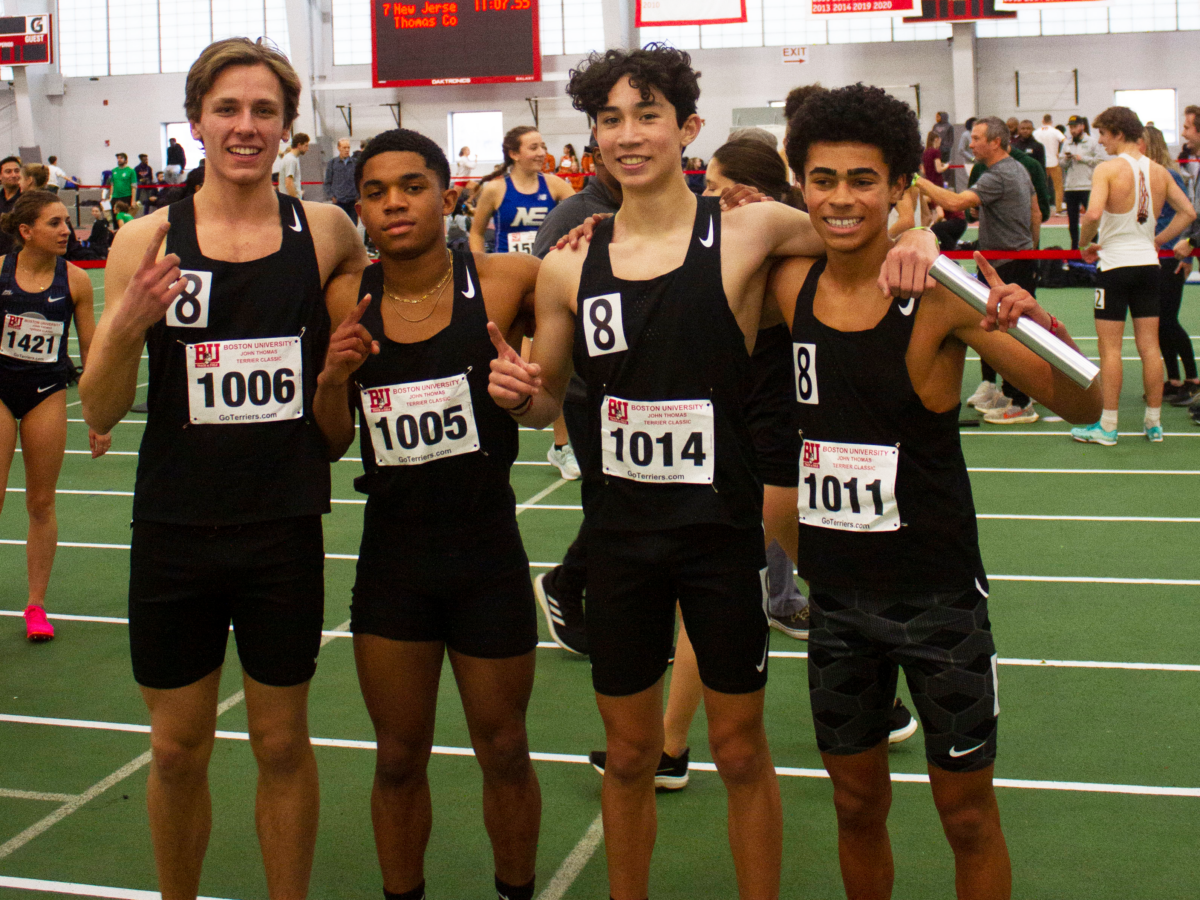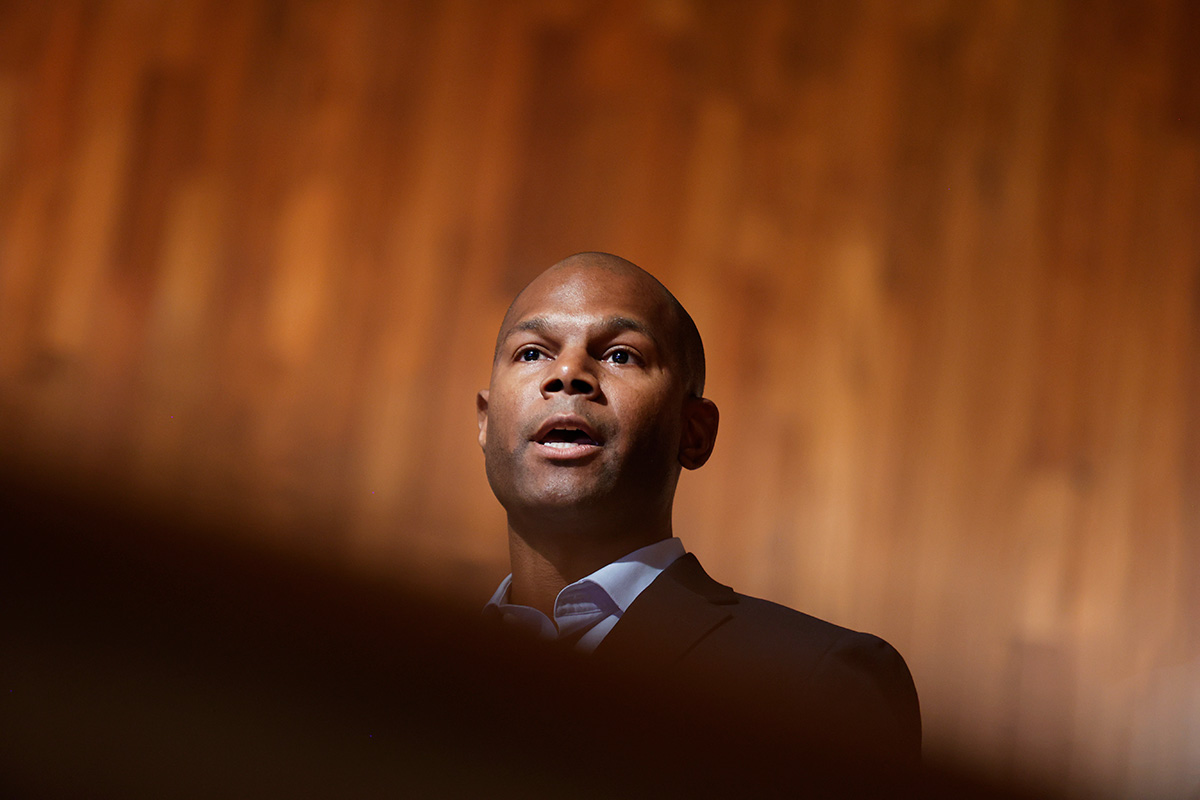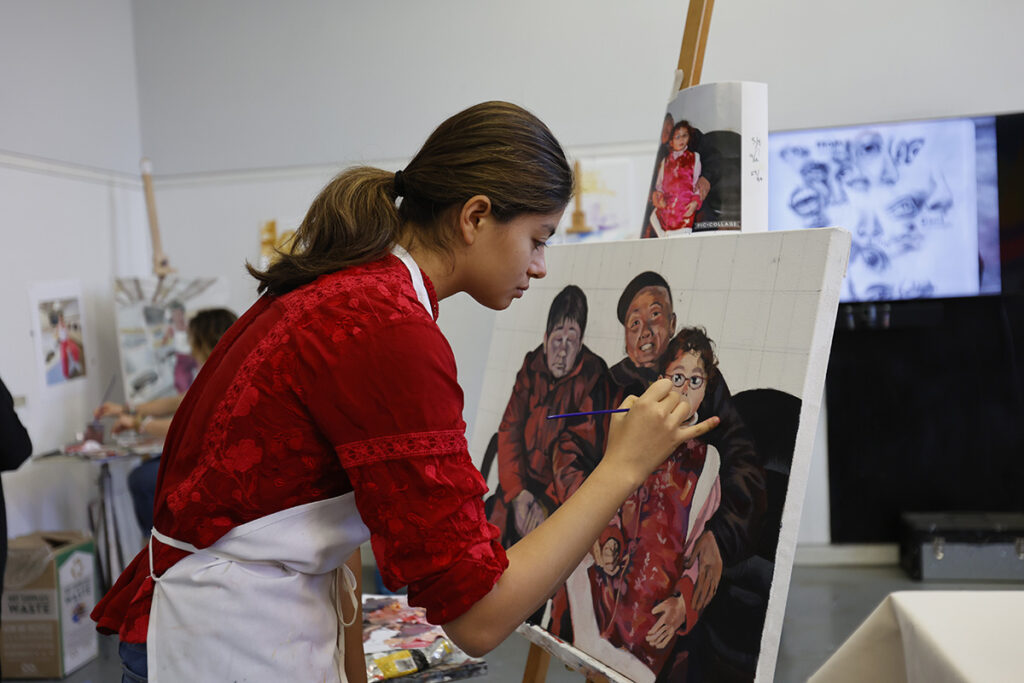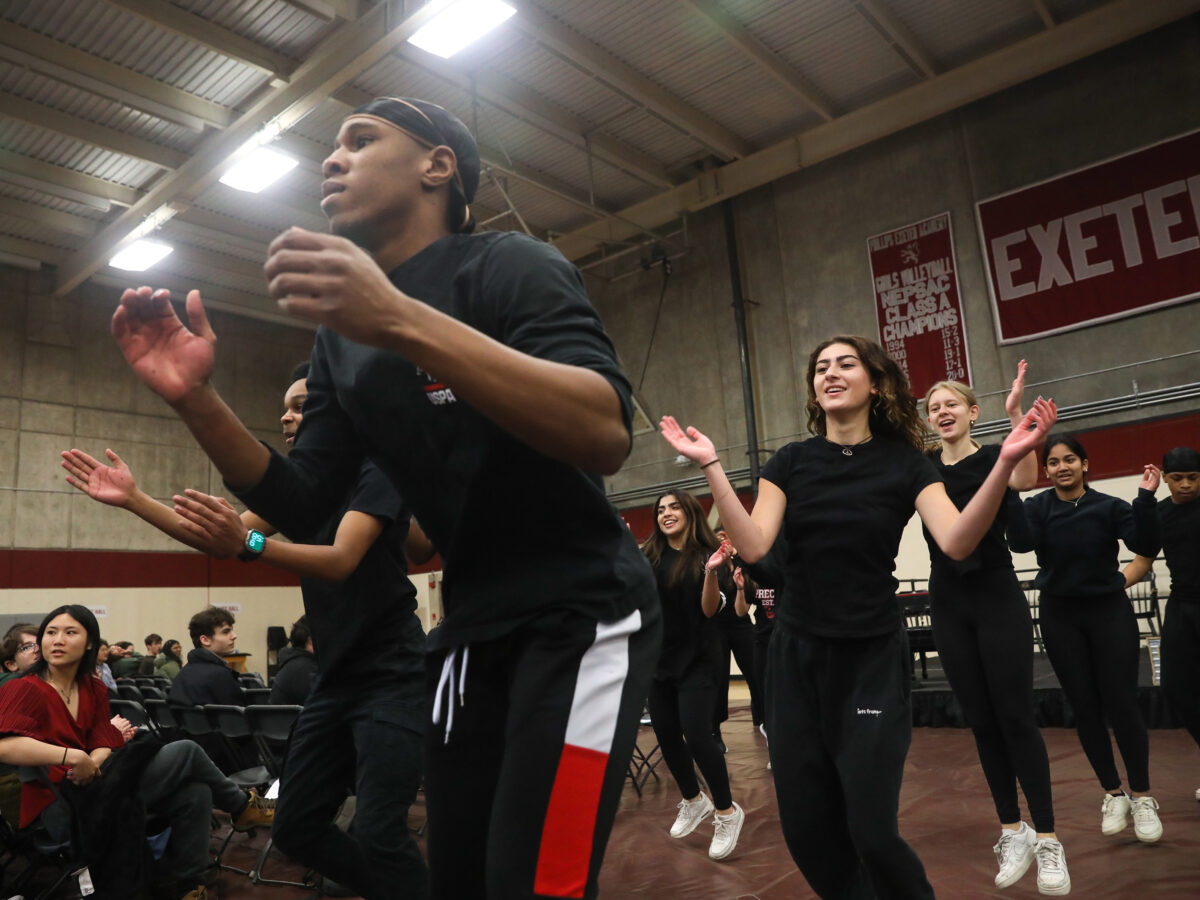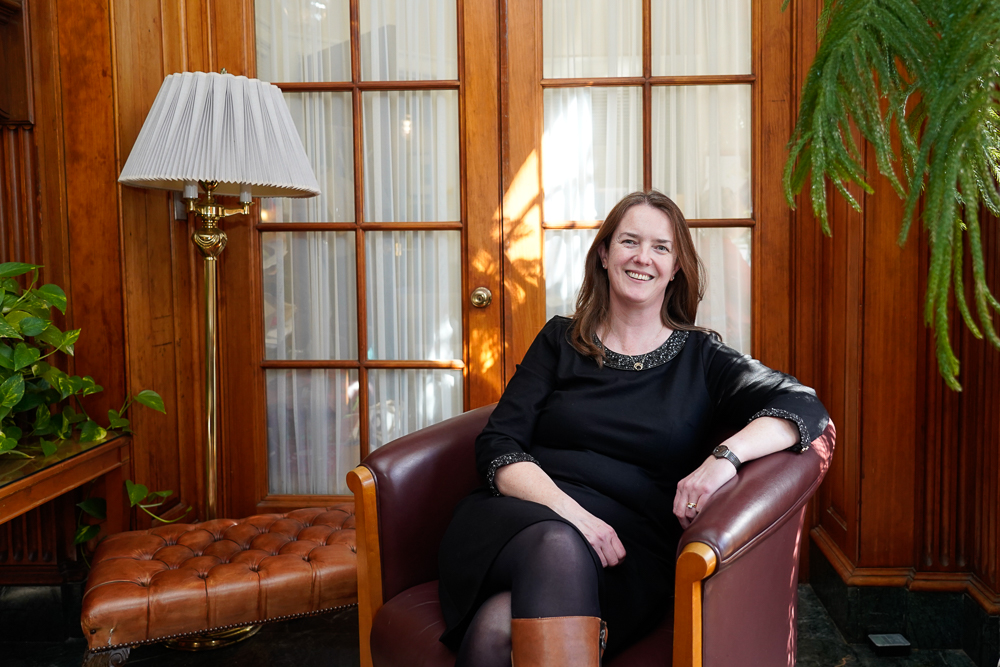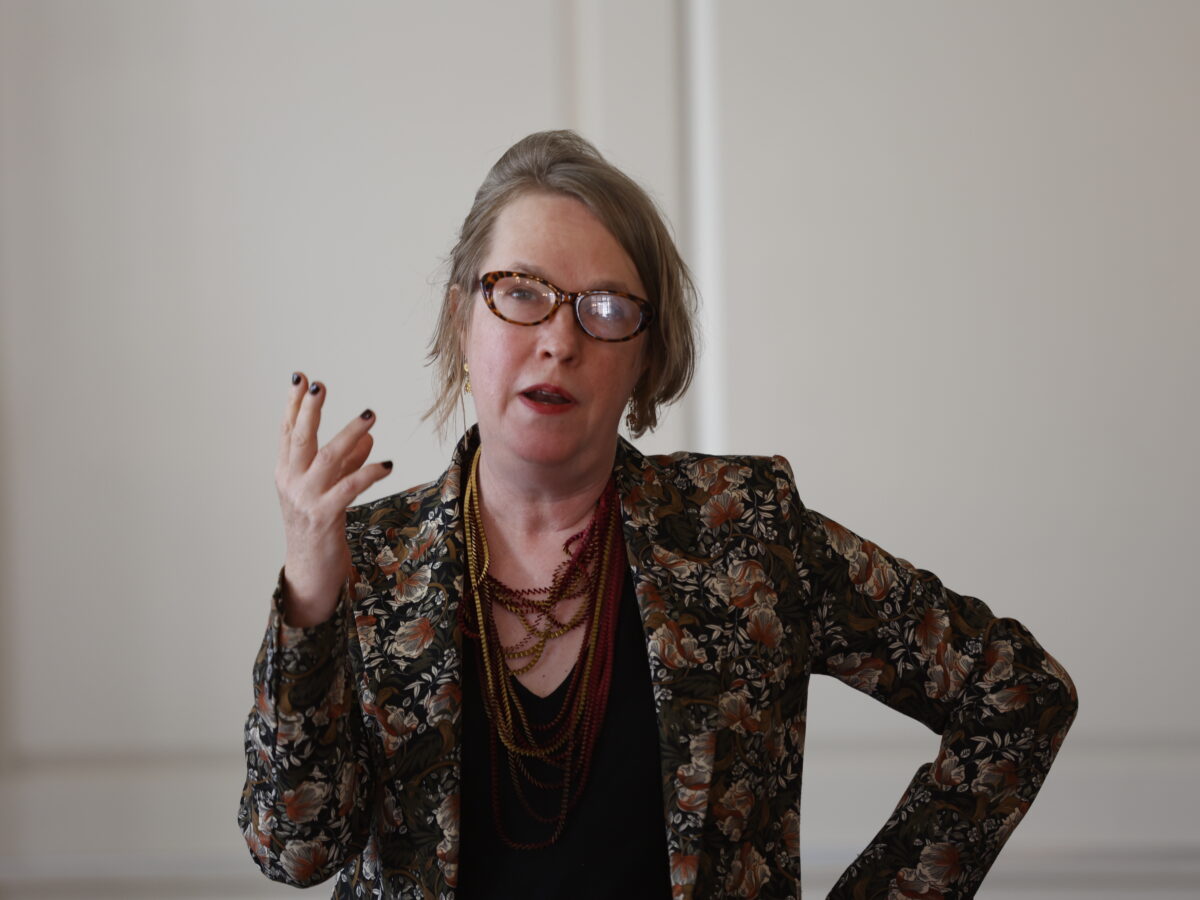Exonians don’t often share such harrowing tales, but Christophe is far from the only member of the Exeter community to serve in the military. To honor those veterans and all who serve, the Academy plays host to Exeter Salutes. Now in its fourth year, Exeter Salutes features a speaker and other events to celebrate those who exemplify the spirit of non sibi through their service and to raise awareness of the effect their service and sacrifice has on our community and beyond.
Christophe’s Navy career has included two dozen postings, from the Arizona desert to the Persian Gulf. Along with his training as a helicopter pilot, he has served in Navy Intelligence. He assumed his current duties as the joint staff deputy director for analysis and warning at the Pentagon in 2020.
He opened his assembly address in November with a disclaimer: “I am here in my personal capacity. … I am here as one of you, as an Exonian. I’m not a recruiter, I’m not a cheerleader. I didn’t even put on my uniform because I didn’t want you to see it. I wanted you to see yourselves.”
> Watch Lt. Cmdr. Christophe’s assembly address
He tried to convey to his student audience why he chose his path and why the concept of non sibi he was taught at Exeter laid the foundation for his views on rights, responsibilities and duty. “Rights are what everybody else owes to you,” he said. “Responsibilities are what you owe to everyone else. You can’t have the first without the second. When people act collectively out of a sense of responsibility and duty to one another, that’s when rights are preserved.”
Christophe closed his remarks by relating the ultimate sacrifice of his service to the lessons his audience encounters daily at Exeter: “It seems to me there’s no greater way to show one’s dedication to anything or anybody than to give blood for it; to give that which supports one’s very life. There is no more potent display of love or any higher sacrifice that a mortal can make.
“In other words, non sibi.”
More than 700 current Exeter alumni, faculty and staff have served or are serving in the U.S. armed forces. Scores more have died in combat or in active service to the country. Please add your military status to Exeter’s official record at www.exonians.exeter.edu/veterans.
Editor’s note: This article first appeared in the winter 2023 issue of The Exeter Bulletin.
